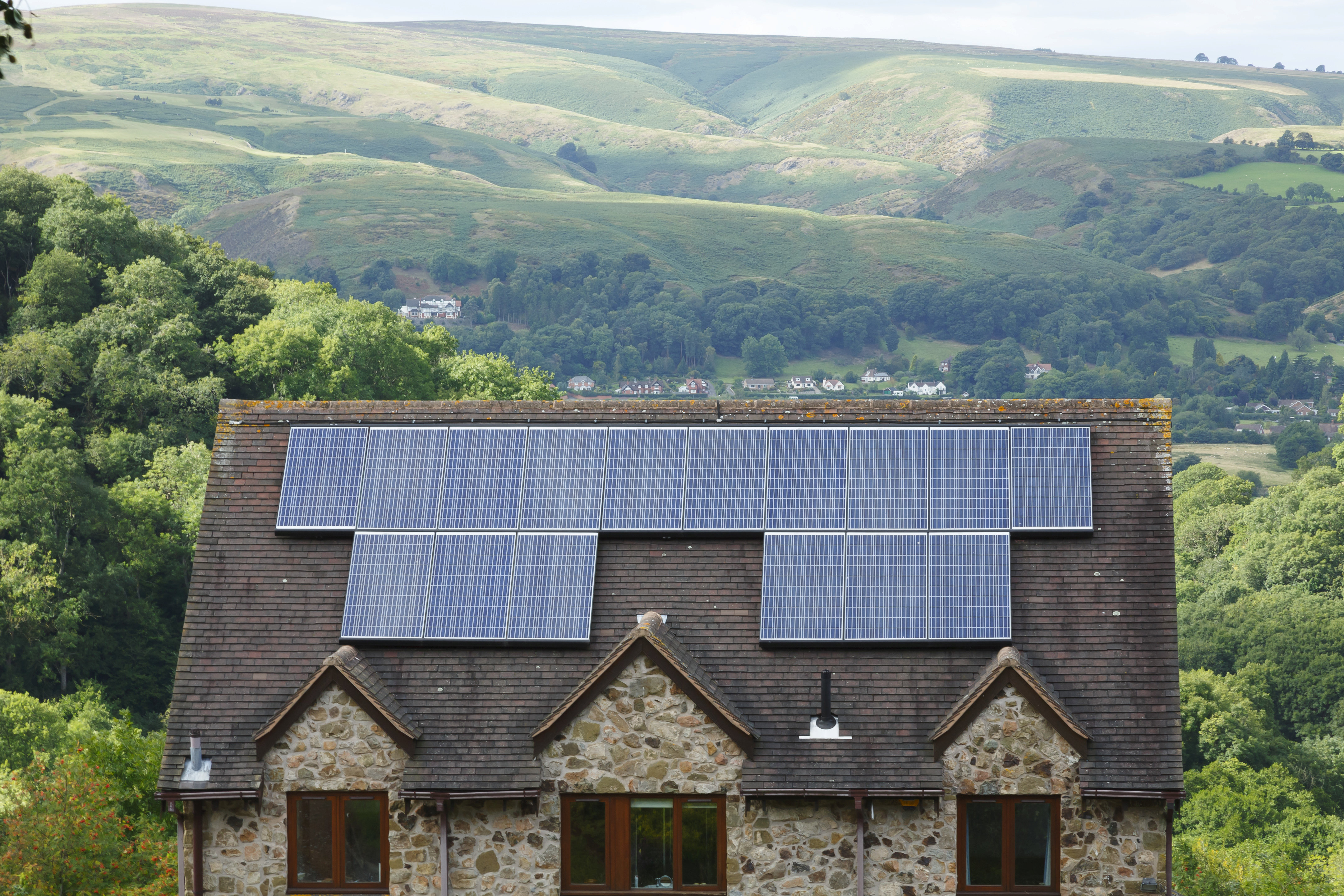Can you go off-grid with solar?

The idea of going 'off the grid' and living completely self-sufficiently is growing in popularity, with more and more people wanting to escape society and live that dream life in a cabin in the woods. But can it actually be done?
What does it mean to live off the grid?
Firstly let's break down what we mean by living off the grid. There are two types of off-grid living, partial or full.
The partial option is when your home is still connected to the grid and can be leaned on if desired, but you also have a separate circuit powering things within the home to reduce your energy costs.
Fully off-grid living is essentially living entirely independently from public utilities and the national electricity, gas, and even water supply.
This can appeal to people who care about their impact on the environment and want to be free of energy bills. Whether alone or part of a larger community, many people live sustainably off the grid and make it work. And why wouldn't they? Living off the grid has some great benefits, but there are many factors you'll need to consider for an off-grid home.
What do you need in order to live off-grid?
For the best off-grid setup, you'll want to use a solar energy system. The first and most obvious thing you'll need is to install a solar array. Of course, this is only possible for houses with a south-facing roof to absorb sunlight optimally. For those solar panels to be feasible, you're going to need to be living in a country with a sunny disposition.
Power isn't the only issue to solve. If you're not connected to mains sewage, you will need a septic tank to dispose of your wastewater and sewage safely. This consists of a buried tank that will require emptying periodically to rid the tank of accumulated sludge and solids.
Having a plentiful supply of clean drinking water is a top priority. You can do this in a number of ways, with the most common outside of simply buying a large capacity water tank and buying some is to create a well. Alternatively, another potential source for off-grid water is by collecting rainfall. It's free and easy to do with a rain catchment system.
Even with these checked off, a lot of the energy you'll be producing with your solar system will be going to waste, so energy storage is a must for any excess. Backup batteries connected to your home's solar panels will reserve any unused energy generated, allowing you to spread the electricity usage during cloudy days and throughout the night.
With advances in renewable energy in recent years, these solar systems are more readily available, easy to install and low maintenance.
What are the advantages of living off-grid?
It is by no means easy to live off the grid, but after the setup is done, you'll get to reap the rewards of your hard work.
How environmentally friendly it is.
Being off the grid allows you to massively reduce your carbon footprint by eliminating the emissions from fossil-fuel generated energy due to the fact you'll be relying entirely on renewable energy sources.
Save money.
After the high initial cost of going off the grid, you'll be paying considerably less than the national grid once you start generating your own energy. Not to mention you won't be at the mercy of utility companies' prices, keeping your costs regular.
Health and well-being.
In addition to the advantages to your mental health through connecting with nature and being outside more, using more efficient energy can also positively impact your physical well-being. Living in an environment that does not pollute means higher air quality.
What are the implications of living off-grid?
Besides the main issue of the cost of setting up a reliable off-grid home, the main implication to off-grid living is that relying solely on solar and batteries isn't feasible. To keep everything you need running throughout the year, you would need an enormous capacity to carry you through the winter months. In this case, you might need to consider reducing your home's energy consumption to facilitate the lowered capacity. Alternatively, you could invest in wind turbines to provide additional energy and support going entirely off the grid.
However, this isn't the only barrier, as depending on where you live, there may be some legal implications to living off the grid. While there are no laws surrounding the topic in the UK, other countries such as the US have tighter restrictions that mean certain aspects of off-grid living might not be possible.
In conclusion, yes, it's technically possible to go off-grid with solar, but it's by no means easy. You can, however, affordably reduce your reliance on the grid and combat rising energy costs by investing in solar and batteries.